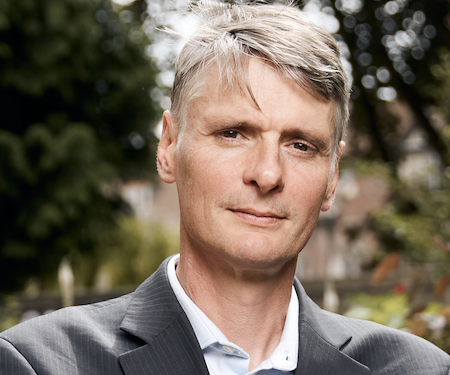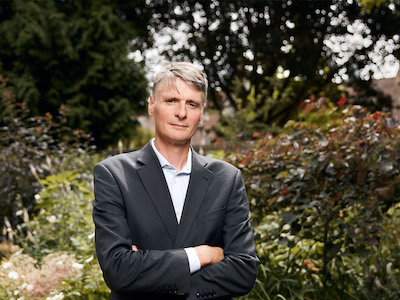 Photo credit: Onur Pinar
Photo credit: Onur Pinar
 Photo credit: Onur Pinar
Photo credit: Onur Pinar
There are some bios below, for other public bio information you can check ORCID or this profile in the Cambridge Alumni Magazine, this one in Johnian Magazine or Wikipedia. Note that to avoid conflict-of-interest editing I did not create and I do not edit the Wikipedia page.
Other Bios
Short Bio
Neil Lawrence is the inaugural DeepMind Professor of Machine Learning at the University of Cambridge where he is also the academic lead of ai@cam, the University’s flagship mission on AI. He is visiting Professor at the University of Sheffield and author of the book The Atomic Human.
Alternative Short Bio
Neil Lawrence is Professor of Machine Learning at the University of Cambridge. He sits boards of the AISTATS foundation, ELLIS, and the Scientific Advisory Council of arXiv. His research focus is on challenges of deploying AI in the real world.
“Public Speaking” Bio
Bio for General Audience Speaking Engagements
Neil Lawrence is the DeepMind Professor of Machine Learning at the University of Cambridge and author of The Atomic Human. A leading voice on the real-world impact of artificial intelligence, Neil brings over 25 years of experience in machine learning research and deployment to his insightful talks.
As a former Director of Machine Learning at Amazon, Neil offers a unique perspective on the practical challenges of implementing AI in large-scale industrial systems. His work spans from the cutting edge of AI research to its applications in developing nations, giving him a global view of AI’s potential and pitfalls.
Neil is known for his ability to demystify complex AI concepts for non-technical audiences. He explores thought-provoking questions about the future of human-AI interaction, data privacy, and the ethical implications of AI deployment. His book, ‘The Atomic Human,’ explores what AI means for our identity and society.
A compelling and engaging speaker, Neil combines technical expertise with a broader understanding of AI’s societal impact. He challenges audiences to think critically about our AI-driven future and offers valuable insights for businesses navigating the rapidly evolving landscape of artificial intelligence.
Subjects Neil Gives Talks On
I give some corporate talks through the London Speaker Bureau, see my profile there.
- “AI in the Real World: Challenges and Opportunities of Deploying Machine Learning Systems”
- Drawing on his experience as Director of Machine Learning at Amazon and his current research, Neil discusses the practical realities of implementing AI in large-scale i industrial settings.
- “The Atomic Human: Understanding Our Unique Intelligence in the Age of AI”
- Based on his book, The Atomic Human, Neil explores what makes human intelligence distinct from artificial intelligence and the implications for society.
- “Data Science for Social Good: Leveraging AI in Developing Nations”
- Drawing on his work with Data Science Africa and interests in applying machine learning in African contexts, Neil discusses how AI can be used to address challenges in developing countries.
- “Navigating the AI Ethics Landscape: Privacy, Transparency and Governance”
- Based on his experience from AI policy and ethics boards, Neil provides insights on the key ethical considerations surrounding AI development and deployment.
- “The Future of Machine Learning Education: Preparing the Next Generation of AI Experts”
- Based on his academic positions as a professor at Cambridge and former Director of Studies, as well as his experience across industry, government and third sector Neil shares his perspectives on how to effectively teach and prepare students for careers in a world where AI is omnipresent.
Other Bios
Medium Bio (General)
Neil Lawrence is the inaugural DeepMind Professor of Machine Learning at the University of Cambridge where he leads the University’s flagship mission on AI, AI@Cam. He has been working on machine learning models for over 25 years. He returned to academia in 2019 after three years as Director of Machine Learning at Amazon. His main interest is the interaction of machine learning with the real world. This interest was triggered by deploying machine learning in the African context, where ‘end-to-end’ solutions are normally required. This has inspired new research directions at the interface of machine learning and systems research, this work is funded by a Senior AI Fellowship from the Alan Turing Institute. Neil is also visiting Professor at the University of Sheffield and the co-host of Talking Machines. He is the author of the book The Atomic Human .
Possible Lines to use for Policy Work
Until September 2023 Neil was actively involved in supporting policy work in data, machine learning and artificial intelligence. He has served as interim chair of the CDEI Advisory board, as an independent advisor for the UK’s Competition and Markets Authority, on working groups with the Royal Society, working with the Centre for Science and Policy, on the UK’s AI Council, and co-convening the Royal Society’s DELVE group for a multidisciplinary Covid-19 response.
Long Bio
Neil Lawrence is the DeepMind Professor of Machine Learning at the University of Cambridge in the Department of Computer Science and Technology where he also leads the Accelerate Programme for Scientific Discovery. He has a Senior AI Fellowship from the Alan Turing Institute. He is co-host of “Talking Machines” podcast and a Visiting Professor at the University of Sheffield and author of the forthcoming book The Atomic Human (release date 30th May 2024).
He received his bachelor’s degree in Mechanical Engineering from the University of Southampton in 1994. Following a period as an field engineer on oil rigs in the North Sea he returned to academia to complete his PhD in 2000 at the Computer Lab in Cambridge University. He spent a year at Microsoft Research in Cambridge before leaving to take up a Lectureship at the University of Sheffield, where he was subsequently appointed Senior Lecturer in 2005. In January 2007 he took up a post as a Senior Research Fellow at the School of Computer Science in the University of Manchester where he worked in the Machine Learning and Optimisation research group. In August 2010 he returned to Sheffield to take up a collaborative Chair in Neuroscience and Computer Science. From 2016 to 2019 he was Director of Machine Learning at Amazon where he worked on deploying machine learning solutions for Prime Air, Alexa and in the Amazon supply chain.
Machine learning technologies are being deployed as independent components in a wider system. This means that the immediate effect of changing one component is not immediately understood. To compound the problem, there is currently no standardised way to declare that a machine learning model has been used. This means that in a large system the downstream consequences of a change may not be understood.
Most of these systems today are deployed using “Service Oriented Architecture” for maintaining the large complex system. Professor Lawrence’s interest is in going beyond this to view the production of data in the system as the service itself, so-called “data as a service”. The result is a new approach to complex software systems design known as “data oriented architecture”.
Data oriented architectures allow for a more holistic approach to machine learning system design, including notions of “progression testing” and “hypervision”. This allows for the monitoring of the complex system after deployment, ensuring that any unforeseen challenges can be quickly identified and rectified.
These research challenges are heavily inspired by the deployment of machine learning solutions in the African context, in particular through Data Science Africa.
Neil was Associate Editor in Chief for IEEE Transactions on Pattern Analysis and Machine Intelligence (from 2011-2013) and was an Action Editor for the Journal of Machine Learning Research. He was the founding editor of the Proceedings of Machine Learning Research (2006) and is currently series editor. He was an area chair for the NIPS conference in 2005, 2006, 2012 and 2013, Workshops Chair in 2010 and Tutorials Chair in 2013. He was General Chair of AISTATS in 2010 and AISTATS Programme Chair in 2012. He was Program Chair of NIPS in 2014 and was General Chair for 2015. He is one of the founders of the Gaussian Process Summer School, the DALI Meeting and Data Science Africa and was a member of the UK’s AI Council, chair of the Centre for Data Ethics and Innovation’s advisory board, and a member of Innovate Cambridge’s steering committee.
His book, The Atomic Human explores human intelligence from the perspective of the machine exploring what AI means for our identity and society.